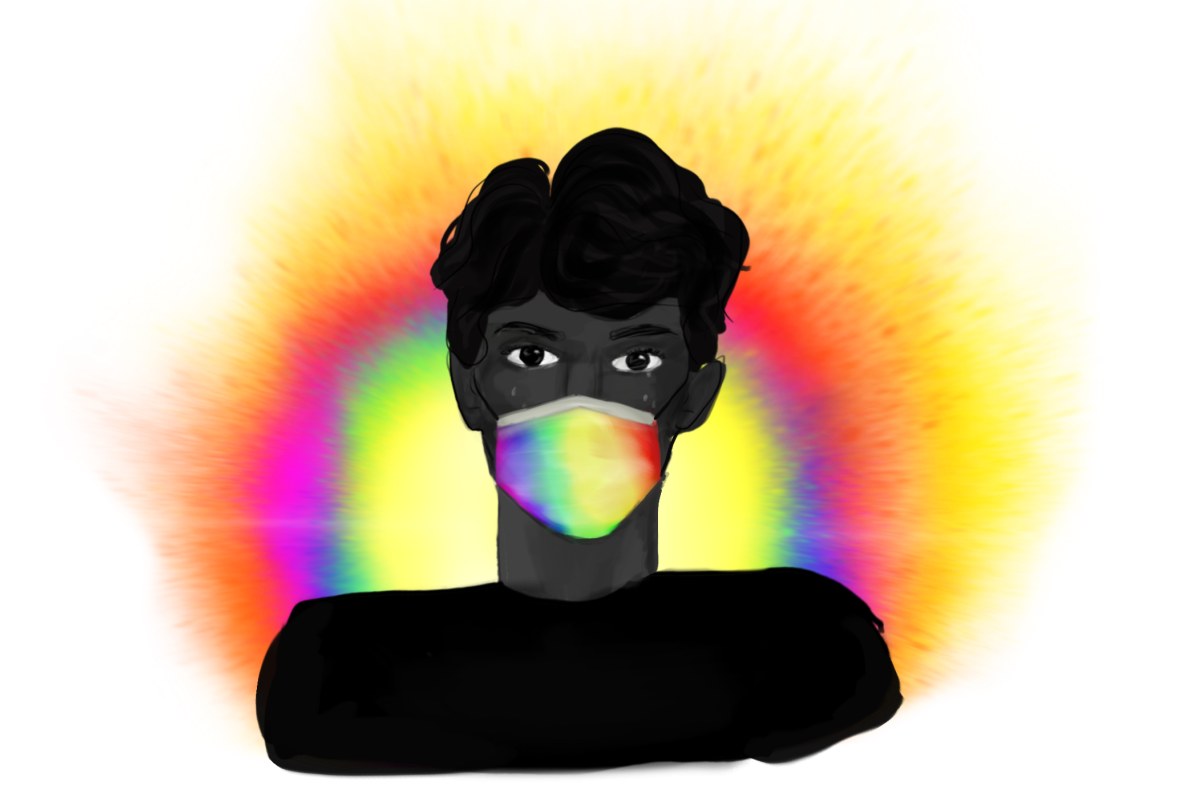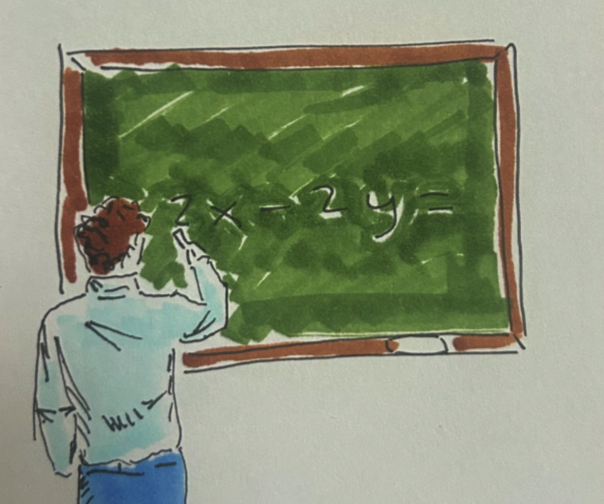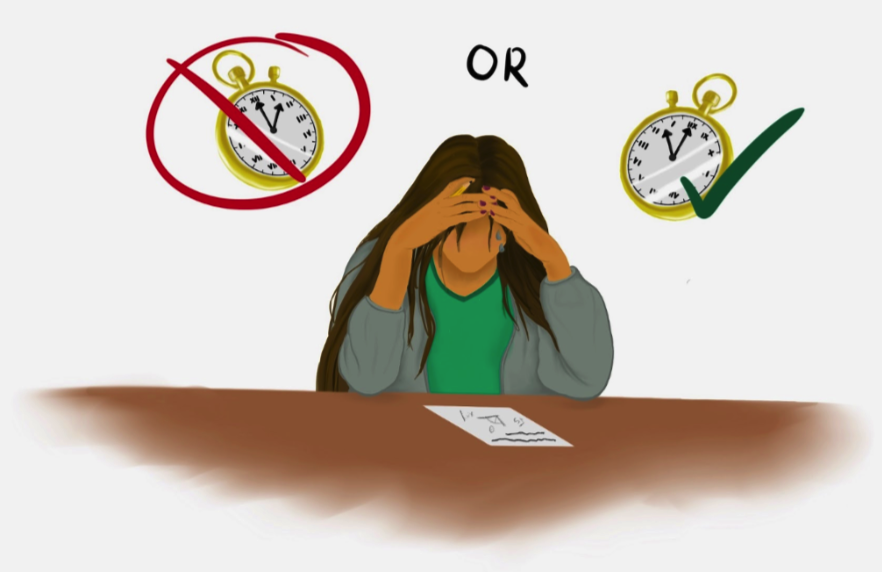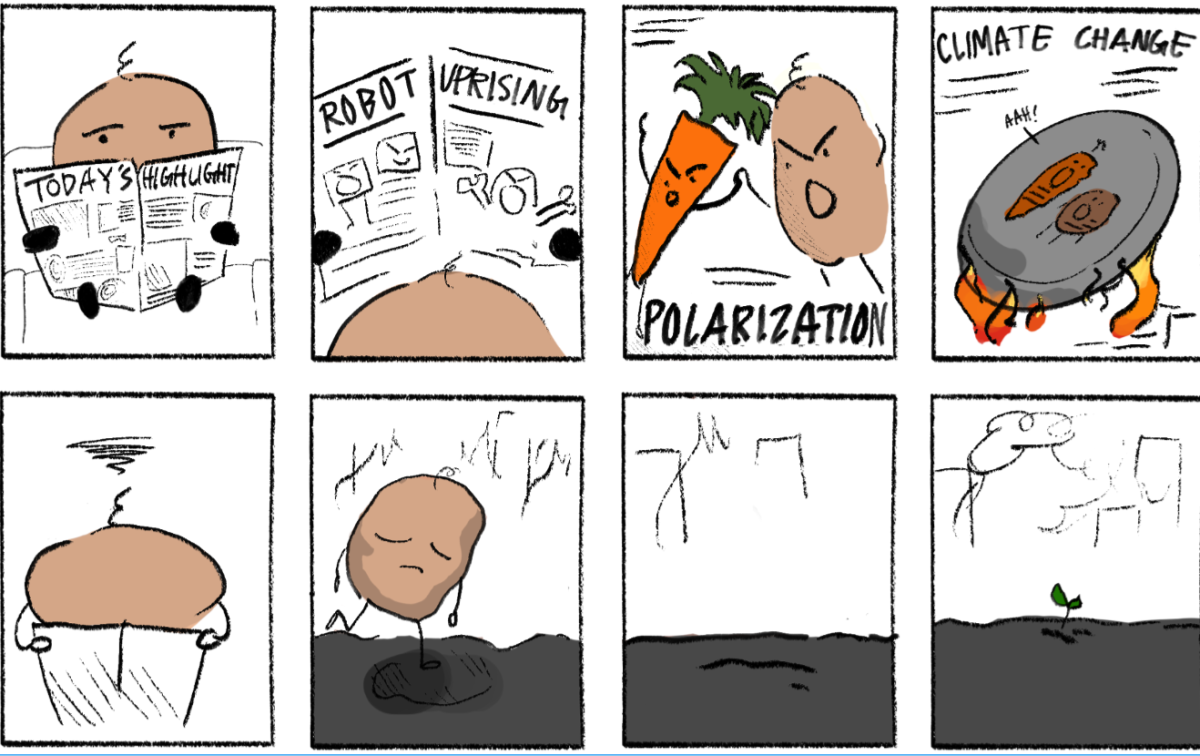As June rolls around the corner, store shelves are stocked with rainbow-colored items and unicorn pool floats as major companies like Adidas and Converse launch Pride-themed items for people to dote on for one month. It’s an exciting time for the LGBTQ+ community as we get to celebrate our identity and show our pride for who we are, but Pride is often misinterpreted. It’s really about recognizing, embracing and celebrating the struggles and achievements of queer people. It’s really about standing in solidarity with those who are still fighting for their rights.
Simon Zernicki-Glover:
I came to Poly from England in seventh grade. When I arrived, people were so curious about me. They wanted to know everything. What living in London was like (I lived an hour away), whether I had a tea addiction (I still do), my favorite color (rainbow), my favorite book (“Call Me By Your Name”), my favorite artist (at that time probably Nicki Minaj), and my favorite TV show, which I would always answer with “RuPaul’s Drag Race.” My sexuality was never a secret. Even though I never labeled it, others always would. I learned from a young age that if you don’t write your own label and stick it up on your forehead, other people will write their own for you. Extravagant. Flamboyant. Too much. Sassy. Zesty. Fruity. Fem. Gay. Gay Best Friend. Twink. F*****.
Ironically, despite writing this article, I don’t know what it’s like to come out. At my old school, I was outed. Here, I never kept it hidden, but, in a sense, I was outed here, too. I only reclaimed agency over my sexuality a month or so ago, and people even misinterpreted that. I wrote a speech about what it’s like to feel alone, something that people other than just I can relate to. However, to many, I was just speaking about myself because it’s hard to empathize with or understand something you can’t relate to — something you haven’t been through. That’s okay, as no empathy is better than fake empathy. Don’t talk about how good your gaydar is. Don’t call random people zesty. Don’t buy a pride flag if you don’t understand why this month exists. Don’t fake allyship if you don’t stand up for your gay friends.
And, seriously, queer people do not owe you an explanation about who we are. It’s important to remember that each of our journeys is different, and it’s not up to you to judge or question. Respecting the autonomy of queer people means acknowledging that we have the right to disclose our identities on our own terms. My life is not a heads-up game. I can do without a label above my head. Understanding that sexuality and gender are complex and diverse spectrums is essential in letting queer people feel welcome. We still face discrimination, harassment and violence simply for who we are. This is why Pride Month is so important. It’s a time to come together and show support for the LGBTQ+ community, raise awareness about the issues that we face and work towards a more inclusive and accepting society. So, please. Learn to empathize. Or at least try to.
Alena Tejavanija:
In my almost twelve years at Poly, I have almost never heard someone explicitly condemn the LGBTQ+ community. In fact, everyone mostly believes they stand in solidarity with the LGBTQ+ community. So, why is it still incredibly stigmatized to “come out” at Poly? I think that, broadly speaking, Poly suffers from a lack of queer culture, pride and visibility. Yes, we have a Queer Straight Alliance, queer teachers and queer students, but, despite allegedly having “Poly Pride,” we lack true pride at Poly.
Although Poly boasts about its inclusive and accepting environment, the school lacks initiative, specifically in the context of queer visibility. Although groups like AAA, BSU, and Latinos Unidos host assemblies and promote awareness, this is distinct from if there were to be a QSA assembly, as race is something you simply cannot hide. However, if one were to host a QSA assembly, the entire Poly community would be invited to make their own assumptions and labels for people who do not want it. Additionally, queer affinities often meet in private so as not to out those who do not wish to declare their sexuality to the student body; thus, their ability to facilitate assemblies like race-based affinities is significantly different.
Therefore, I think it’s up to the entire community to be accepting of the queer community and their queer peers. Poly is headed in the right direction with a lot of their diversity initiatives, such as SLIDE and affinity groups, but there is still a long way to go in terms of changing the inherent culture of the school. It is up to students to promote diversity. It is up to students to justify themselves as a minority in a competitive environment. It is up to students to practically out themselves to embrace queer culture. Poly’s environment forces queer invisibility while simultaneously preaching about acceptance and visibility. The pressure to come out is bred by heteronormativity, a far cry from voluntary visibility. Additionally, if you do celebrate queer culture but are not queer yourself, people are quick to assume that you are queer, and if you are queer and celebrate queer culture, people also make assumptions.
Poly’s culture, like our society, forces people into labels, categories and boxes to make them more palatable for the status quo. Is coming out really the empowering experience that the media makes it out to be? The answer is a mixed bag. When met with the right reaction, coming out can indeed be a transformative and liberating experience. But for many queer people, coming out is a performative obligation that they feel they owe to the majority. It is built on the understanding that there is an “us” and a “them,” and Poly contributes to this understanding.
Instead of trying to understand our students and peers genuinely, Poly has created a culture of assumptions, discomfort and mere tolerance regarding the queer community. When people say, “I don’t like to assume anyone’s sexuality,” what some of them really mean is, “I assume people identify as ‘how they act,’ and I will treat them as such.” What I mean by the latter is that people at Poly like to make assumptions about people without actually investing the time to get to know the other person.
When a queer person comes out, often they hear, “I don’t care if you are this or that.” But the issue with this sentiment is that the person coming out did it for the other person instead of for their own empowerment. Queerness has become packaged and sold to straight people like it’s just a commodity for their entertainment. I’m not saying that we should abolish coming out or labels entirely; however, I do believe that there is something empowering about being able to find a group that shares one’s identity. We need to shift the narrative back into the hands of queer people. Queer people should have agency and autonomy over whether or not they explicitly disclose their identities and preferences, and they certainly do not owe an explanation about who they are to anybody. No one should treat people differently because of their perceived notions of them.




